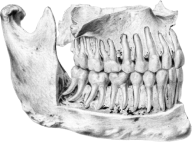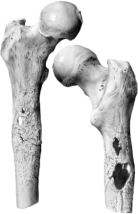
View of the 18th Century gallery
Health and Medicine in Britain Workshop
Students will investigate the work and context of significant individuals such as John Hunter, Edward Jenner, Joseph Lister and Harold Gillies as well as the history and development of surgery up to the present day - before evaluating the significance of their work and discoveries.
Risk Assessment (doc, 397.312 KB)
This workshop explores the art of surgery using real objects, facsimiles of manuscripts and illustrations to inspire curiosity through observation and encourage discussions using evidence-based resources. This session may include:
1: Medical History
2: Development in Surgery (including war surgery)
3: Infection Control
This workshop is for GCSE students studying ‘Health and the People’ from the AQA and 'Medicine in Britain' Edexcel curricula.
|
AQA – Health and the People
Edexcel – Medicine in Britain
|
The Health and Medicine in Britain sessions will take place from 9 October to 13 November 2025 on Tuesdays and Thursdays at 10am-12pm and 1.30pm-3.30pm and from 10 February to 14 April 2026 on Tuesdays at 10.30am-12.30pm and 1.30pm-3.30pm. Now available to book online.
No sessions will be offered during February half term, Easter holidays and October half term.
This workshop has a maximum capacity of 30. The ratio of teachers to pupils depends on students’ age:
- Age 14-16: 1 teacher to 10 pupils
The minimum group size is 9 people, including 1 teacher.
Two hours
1 hour workshop followed by an hour in the Museum with a trail. There is a 15 minute buffer for arrival time, toilet break.
Hunterian Museum, Royal College of Surgeons of England, 38-43 Lincoln's Inn Fields, London. WC2A 3PE
You will need to have the following information before making your booking.
- A credit/debit card or paypal method of payment
- The date and time of your visit
- The school's postcode
- The number of students and teachers in your group
- The year group of the students
- The course/subject you are coming for
- Any specific access requirements
- Whether you wish to opt out of a topic
This workshop is £220 per group.
If you are unable to attend your session, it is your responsibility to advise us with as much notice as possible, ideally four weeks or more*, please email [email protected] to cancel your booking.
*If you notify us at least 4 weeks before the date of your visit we are happy to offer you a full refund (excluding the eventbrite fee).
Book now
This workshop has a maximum of 30 students and 4 teachers. A minimum of 8 students is required.
The ratio of teachers to students depends on students’ age:
Age 14-16: 1 adult to 10 students
£220



